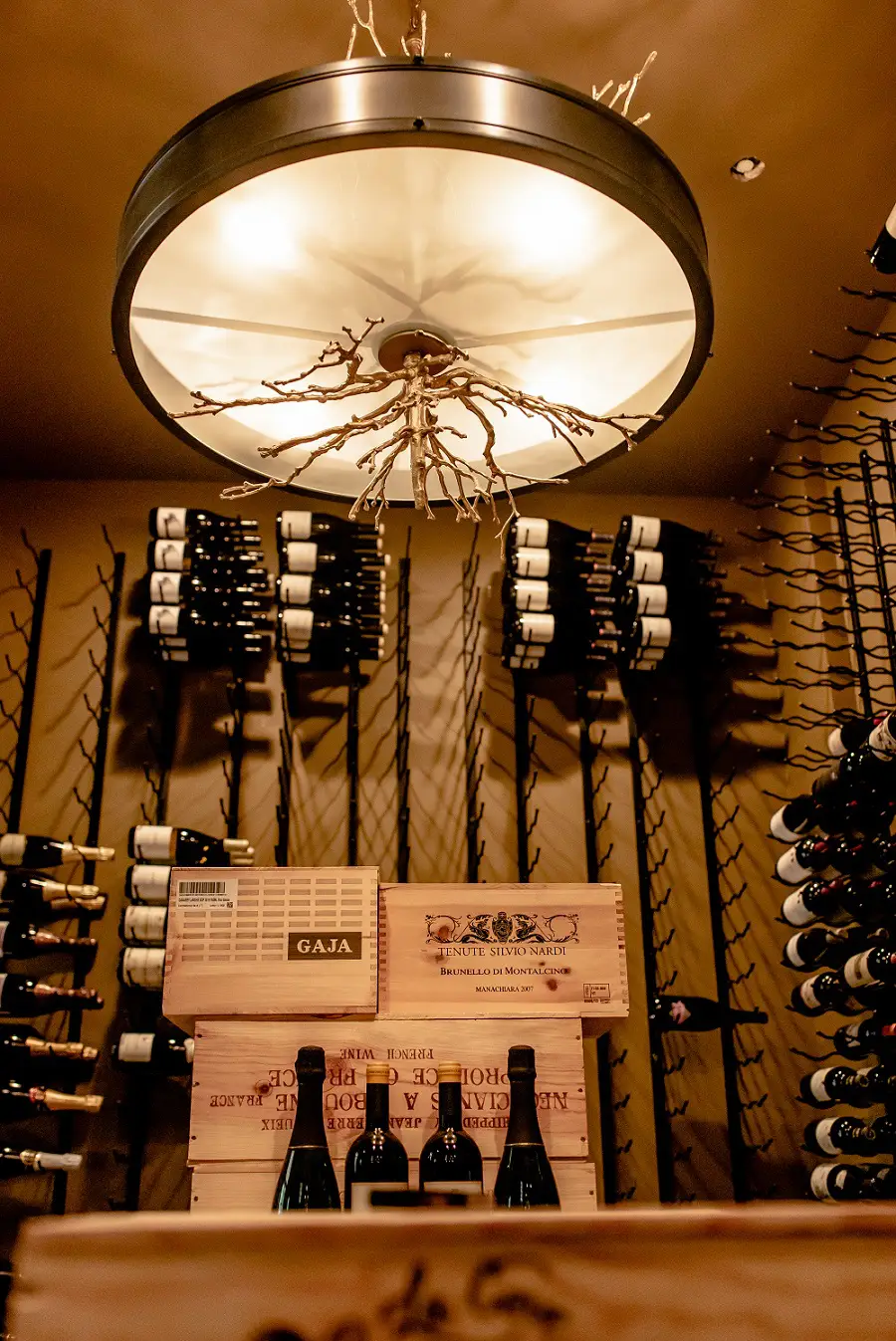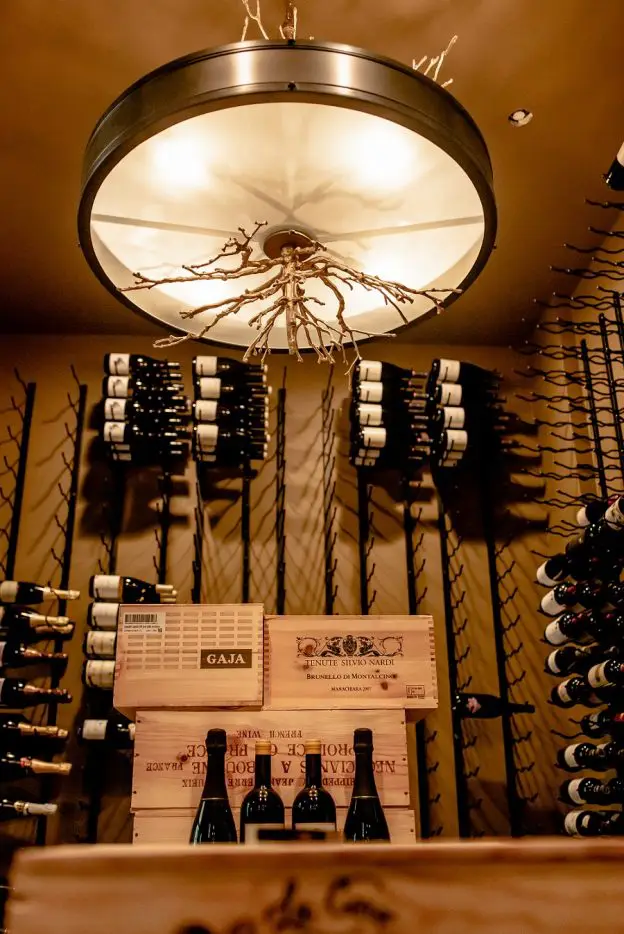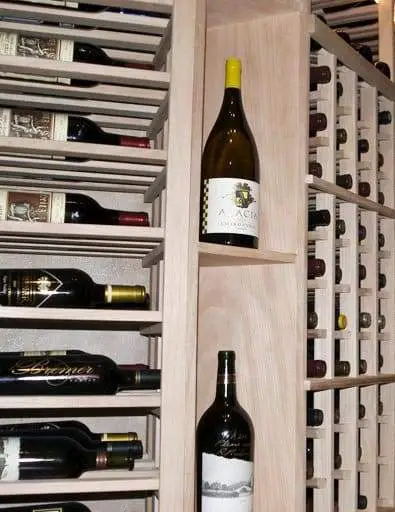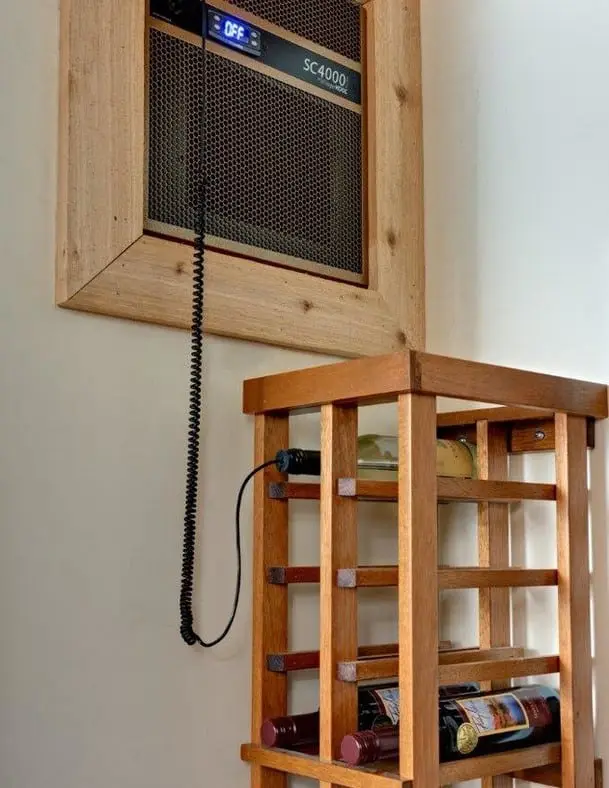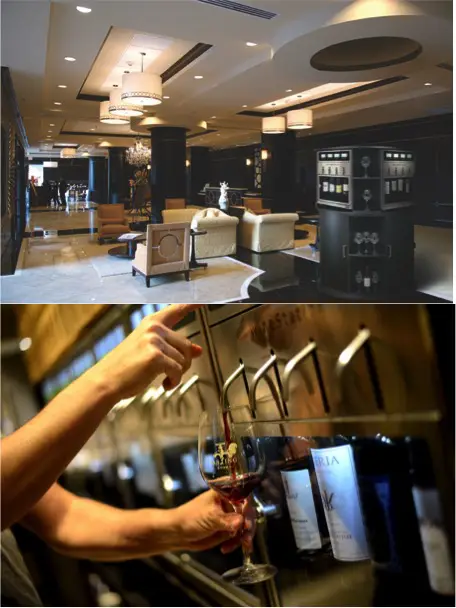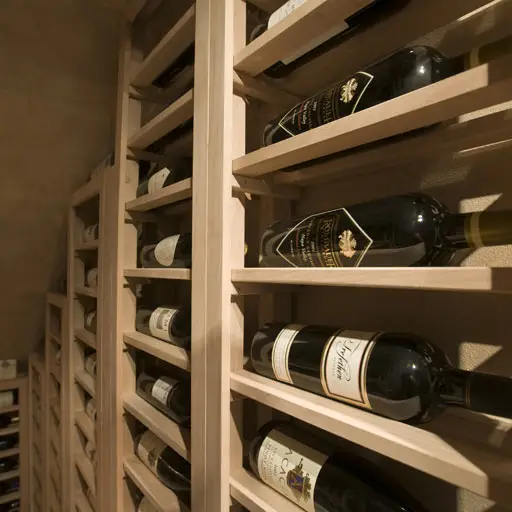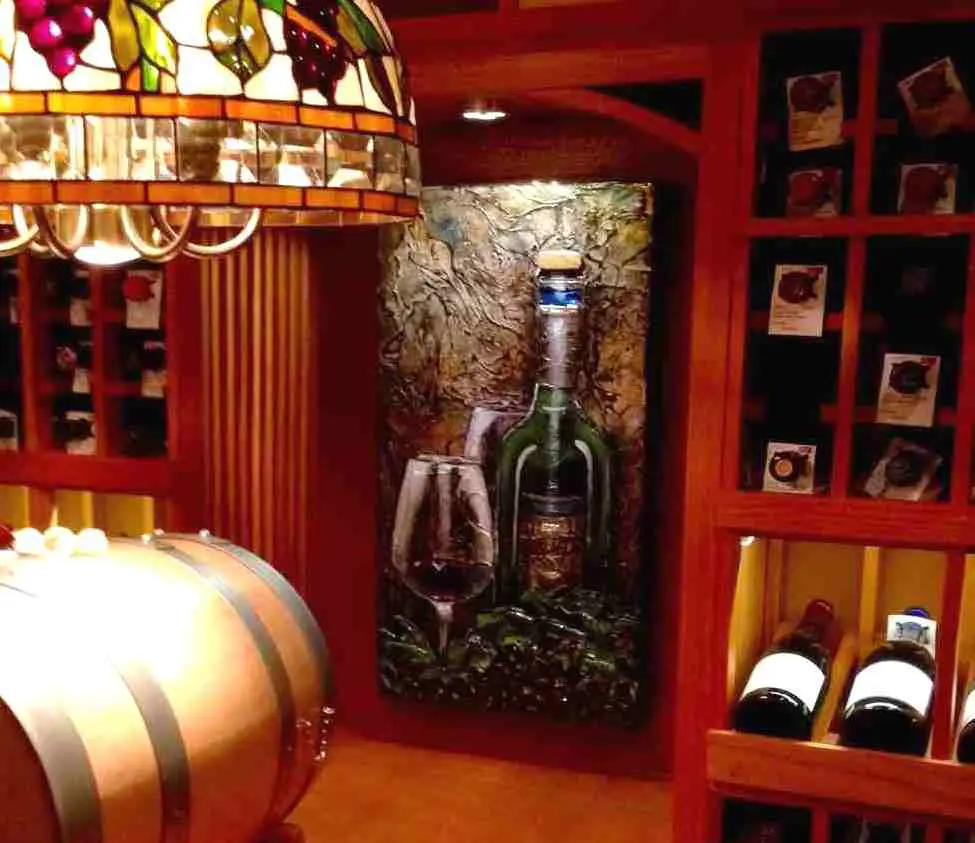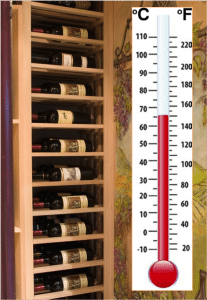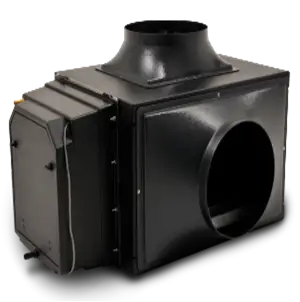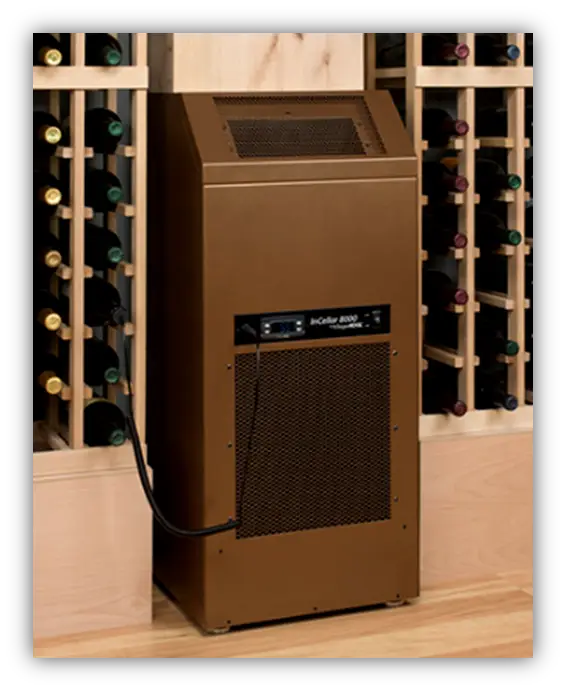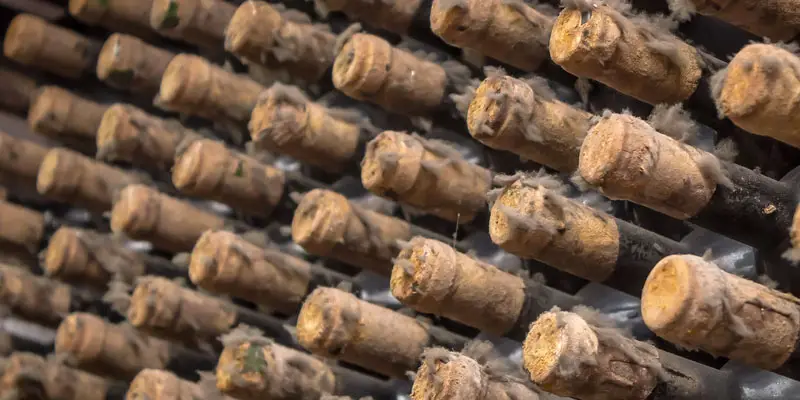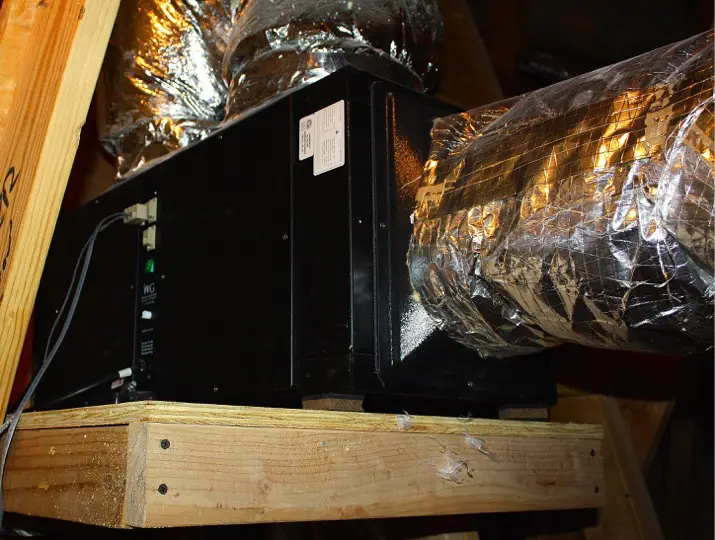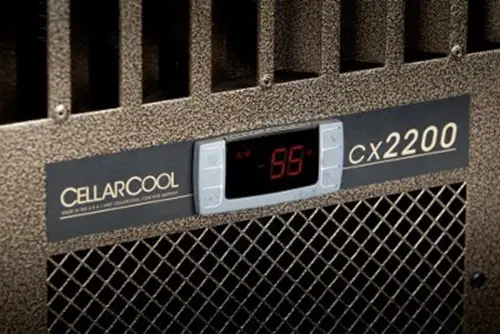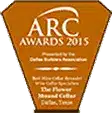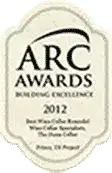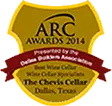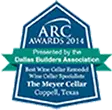You can avoid wine storage problems when you work with the right builder. Wine Cellar Specialists is composed of HVAC experts who have been providing wine cellar cooling solutions for residential and commercial applications. We know and understand the importance of regulating the temperature and humidity levels in your wine cellar. We have extensive experience in the installation of wine refrigeration systems in Texas.
Temperature and Humidity Control and Wine Cellar Cooling Tips from HVAC Experts in Texas
So you want to build a wine cellar in your home. Congratulations. Making this decision is the first step to best protecting your wine collection, whether you’re collecting as an investment or just as a way of making sure that no matter the occasion or the food being served, you have the right wine to pair with it. Paramount to your wine cellar is the cooling unit you install, and the type of cooling unit you install will depend largely on how large your cellar will be, the type of wine you plan to store, and where in your home you build your cellar.
Humidity: Why Should It Be Regulated
Humidity is one of the factors that can affect the quality of your wines. Therefore, it must be regulated to prevent wine storage problems. The ideal humidity level in a refrigerated wine room is 60 to 70 percent. Failure to stay inside this range will cause wine spoilage.
One of the adverse effects of humidity levels exceeding 70% is mold growth, which can ruin your wine labels, and worst, the corks. When mold grows on the corks and will contaminate the wine stored inside the bottle that it seals. Moreover, mold will also damage the structural integrity of your wine cellar as it can degrade your wine racks, door, and walls.
When the humidity level is below 60%, the corks will dry out and shrink. The decrease in the cork’s size will allow oxygen to enter the bottle and oxidize the wine. An oxidized wine has off-flavors and unpleasant smells.
Temperature: What is Its Importance in Wine Storage?
Temperature control is vital in building wine cellars. Ideally, a refrigerated wine cellar should have a temperature between 55-65 degrees Fahrenheit. Very high temperatures or temperature fluctuations will alter the chemical properties of your wines because heat accelerates the process of aging.
The Role of an Efficient Wine Cellar Cooling System in Controlling the Conditions in Your Texas Wine Room
Keep in mind that a regular air conditioning system will not help in controlling the humidity in your cellar. A wine cooling system is designed to do just that – keep your wine cool. An air conditioning system, like the one you may have in your home, will dry out the air in residential or commercial cellar, which could eventually dry out the corks.
An efficient wine cellar cooling system designed by reliable manufacturers is intended for achieving the optimum conditions needed for your wines to reach their proper maturation.
Types of Wine Cellar Cooling Systems Offered by Wine Cellar Specialists in Texas
Some systems are ducted and others are not. Some have separate evaporators and condensers, others are all in the same unit. The type of system you need will also depend on where you live. Live in the western part of the United States and you may need to increase the natural humidity level in the room where your cellar is. Live in the north or northeast, and in the winter, you may need to increase the humidity, but in the summer you may not need as much.
When you add a climate control system to your wine cellar, as the room will be cooled, and because of the vapor barrier in the walls encompassing the room, and the liquid mass of wine in the room, the humidity will naturally increase inside the room to be higher than the air outside of the room. Most parts of the country do not need extra humidification once the room is functioning. All of the cooling units will help to get rid of excess humidity and regulate the humidity in this way. The right refrigeration/cooling system is out there for you. And there are experts who can help you find the option that will work best for you in your home in Texas.
So what about winter in areas that see temperatures in the single digits? If your compressor sits outside, this must be taken into consideration when ordering your unit. Some cooling units can withstand the super cold temperatures, others cannot. Some can have low-ambient protection added for areas of the country where it is needed. This will protect your compressor when temperatures fall below 40 degrees outside.
Most cooling systems come with built-in temperature controls. See other blog posts for why going with a digital control is best. But humidity controls are often missing. Most of these units still help to control your humidity by getting rid of the excess. There are only a few systems on the market which claim to actually add humidity back into the room when it becomes too low. If you live in a very dry climate, it is as important as temperature control. If you do not regulate and control the humidity level in the room where your wine is stored, the dry side of the cork can dry out even more, which can eventually lead to air seeping through the cork, which can destroy your wine. Keep the humidity between 60 and 70 percent and you can ensure your cork doesn’t dry out.

 Dallas
Dallas 
